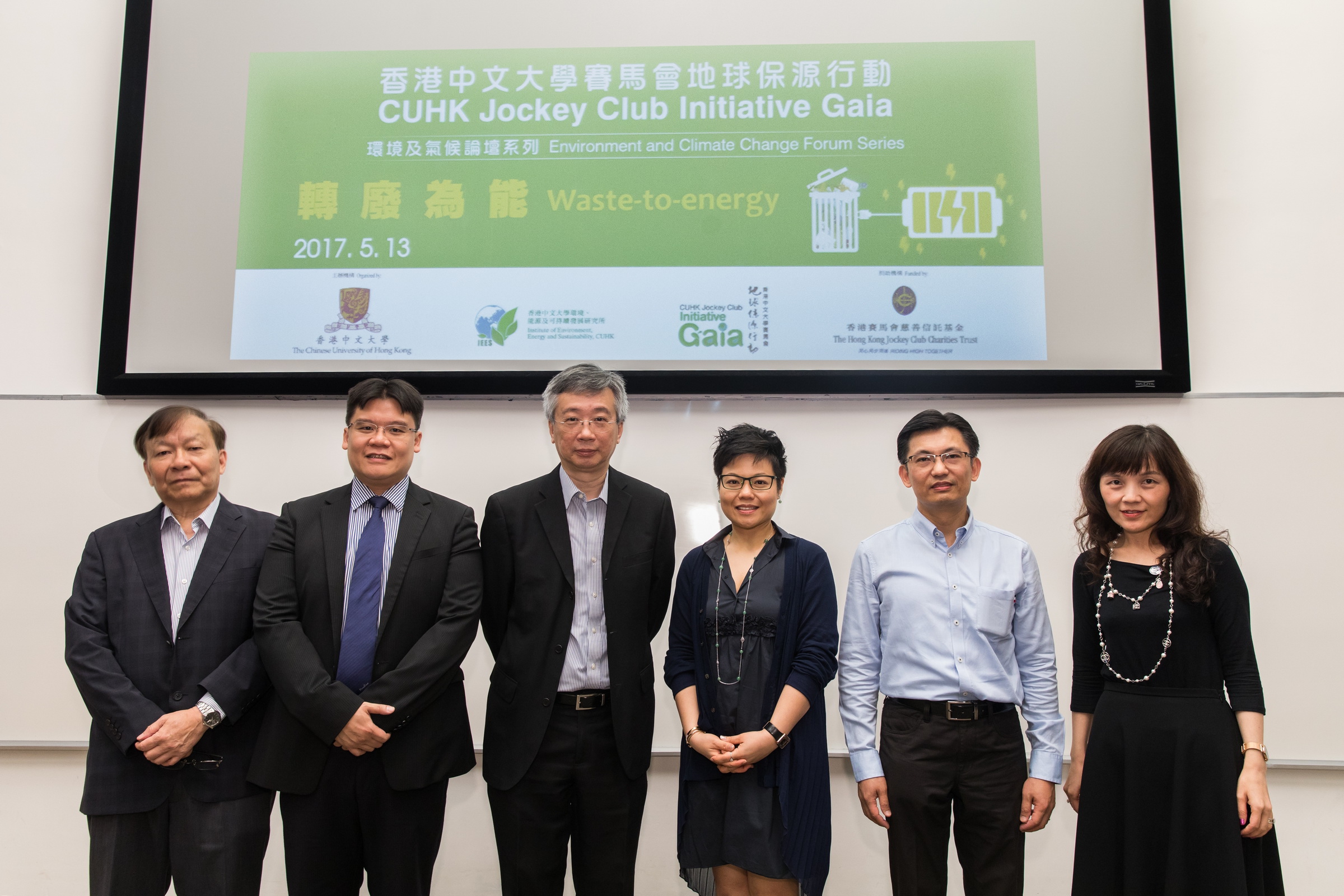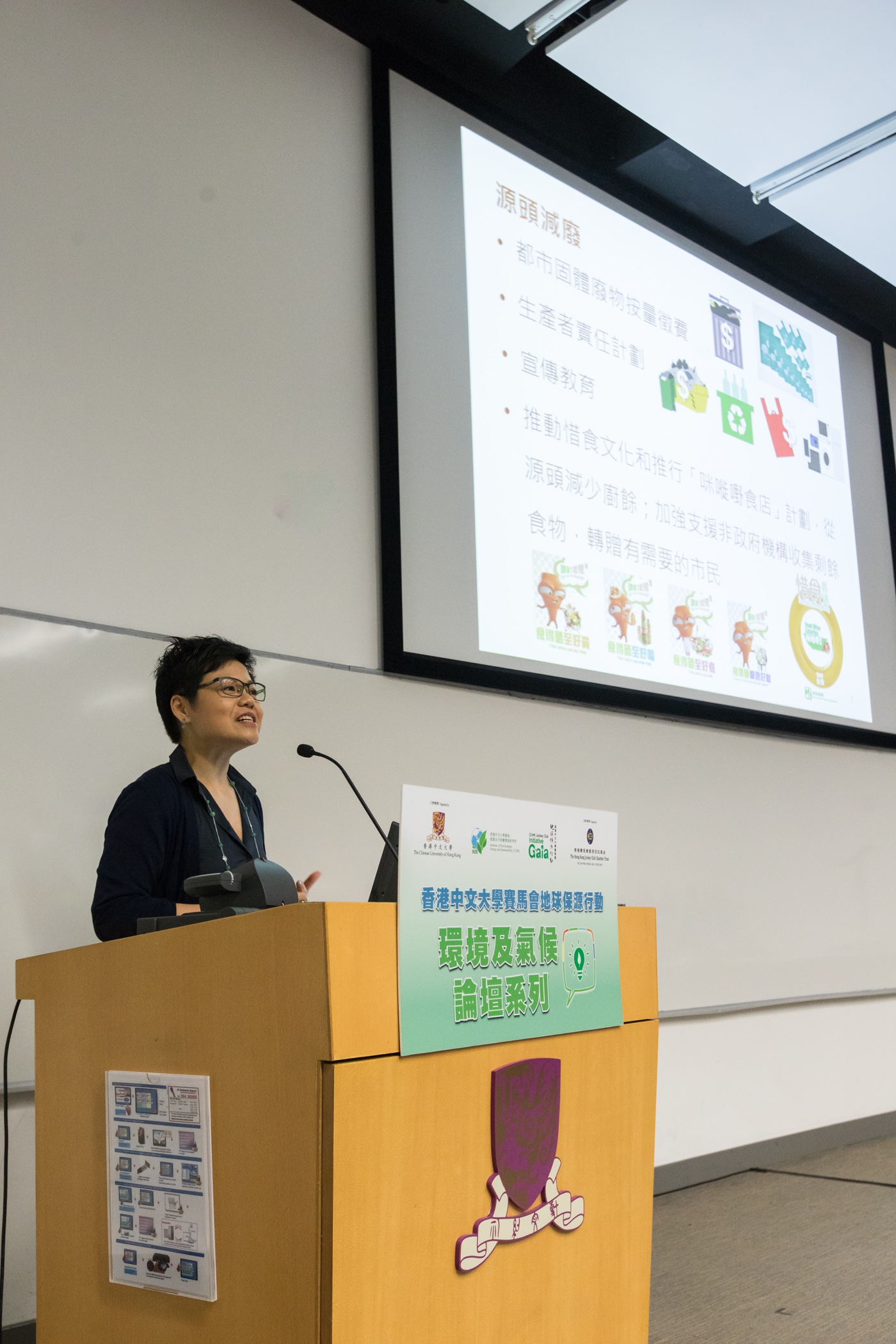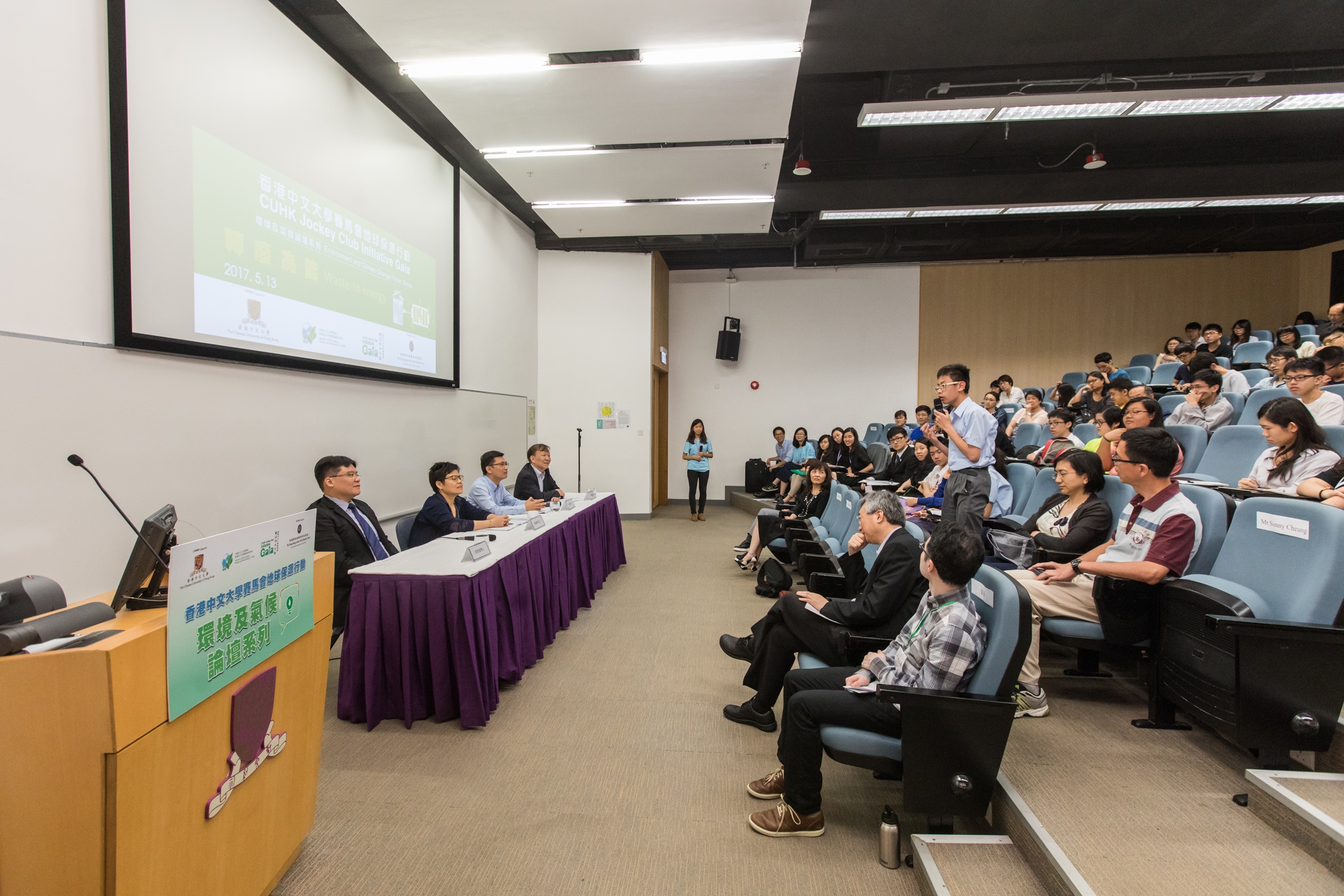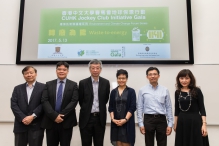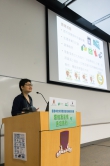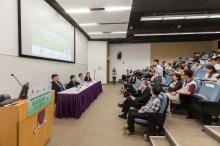CUHK
News Centre
CUHK Jockey Club Initiative Gaia Holds Forum to Discuss ‘Waste-to-energy’ Solutions in Hong Kong
The Chinese University of Hong Kong (CUHK) Jockey Club Initiative Gaia (‘Gaia’) held a forum on the theme of ‘Waste-to-energy’ last Saturday (13 May). The forum, which is part of the Environment and Climate Change Forum Series, gathered experts from different sectors to share knowledge about, and insights into, various waste-to-energy solutions in Hong Kong. The event attracted about 120 participants from the public and private sectors, local schools and tertiary institutions.
Treatment of waste such as sewage sludge and municipal solid waste can produce energy as a by-product with the application of waste-to-energy technologies. In Hong Kong, the largest waste-to-energy facility, T.PARK, opened in May 2016, and two organic waste treatment plants have been scheduled to open by the end of 2017 and 2021 where biological technologies will be used to stabilize organic waste and turn it into useful compost products and biogas for energy recovery.
The forum invited Mrs. Vicki Kwok, Deputy Director of Environmental Protection of the HKSAR Government, as the keynote speaker. Other guest speakers included Dr. Anthony Ma, Principal Consultant of the Hong Kong Productivity Council, and Dr. Joseph Yung, Associate Head of the Department of Applied Biology and Chemical Technology, The Hong Kong Polytechnic University. The forum was chaired by Prof. Chau Kwai-cheong, Chairman of the Campus Environment Committee, Wu Yee Sun College, CUHK.
In the forum, Mrs. Kwok pointed out that, as a global city upholding its environmental stewardship, Hong Kong should get itself better prepared for the challenges of climate change. Under the ‘Hong Kong Climate Action Plan 2030+’, the Government has mapped out a holistic strategy and devised concerted plans for meeting a new carbon emissions reduction target for 2030.
Among other things, ‘waste-to-energy’ is an important strategy that benefits society as a whole. For instance, the sludge treatment facility, also known as T.PARK, in Tuen Mun is equipped with state-of-the-art facilities to turn thermal energy generated from incineration into electricity. Apart from meeting the electricity demand of the treatment facility, the surplus electricity will be exported to the power grid. The upcoming Organic Waste Treatment Facilities Phase 1 will be another important milestone on Hong Kong’s ‘waste-to-energy’ road. The Government will continue to tap market expertise and ideas in pursuing our waste-to-energy initiatives. By recovering useful resources from the waste stream, we will be reducing carbon footprints, as well as promoting further development of waste management technology.
During the question-and-answer session, participants had a fruitful discussion with the speakers about the feasibility of implementing waste-to-energy solutions in Hong Kong.
About the CUHK Jockey Club Initiative Gaia
CUHK Jockey Club Initiative Gaia is a five-year community engagement programme launched in 2012 by CUHK with a generous donation of HK$70 million from The Hong Kong Jockey Club Charities Trust. In support of Gaia’s commitment to paving the way to a sustainable future for Hong Kong, the programme’s aim is to promote environmental conservation and sustainability in local communities, through public education and carbon-reduction partnerships with schools and non-governmental organisations.
To draw on the collective wisdom of the community and to encourage active public participation in tackling various environmental issues, CUHK Jockey Club Initiative Gaia has organized the Environment and Climate Change Forum Series. The forums invite experts and practitioners from different fields, as well as members of the public, to offer different perspectives on our environmental challenges and the impact of climate change, and to propose feasible solutions.
The first of its kind in the world, the Jockey Club Museum of Climate Change (MoCC), maintained by Gaia, is open to the public with free admission. The MoCC showcases the ‘Three Poles’ (the North Pole, the South Pole and Mount Everest) collection of renowned Hong Kong explorer Dr Rebecca Lee, innovative research on the environment, energy and sustainability initiated by CUHK, and the Jockey Club’s initiatives to promote green living in the community.
More details of the CUHK Jockey Club Initiative Gaia can be found at www.cuhk.edu.hk/gaia.
(From left) Prof. Chau Kwai-cheong, Chairman of Campus Environment Committee of Wu Yee Sun College, CUHK; Dr. Joseph Yung, Associate Head of Department of Applied Biology and Chemical Technology, The Hong Kong Polytechnic University; Prof. Fung Tung, Associate Vice-President of CUHK; Mrs. Vicki Kwok, Deputy Director of Environmental Protection, HKSAR Government; Dr. Anthony Ma, Principal Consultant of Hong Kong Productivity Council and Mrs.Cecilia Lam, Programme Director of CUHK Jockey Club Initiative Gaia.
Mrs. Vicki Kwok, Deputy Director of Environmental Protection, HKSAR Government, delivers a keynote speech.


